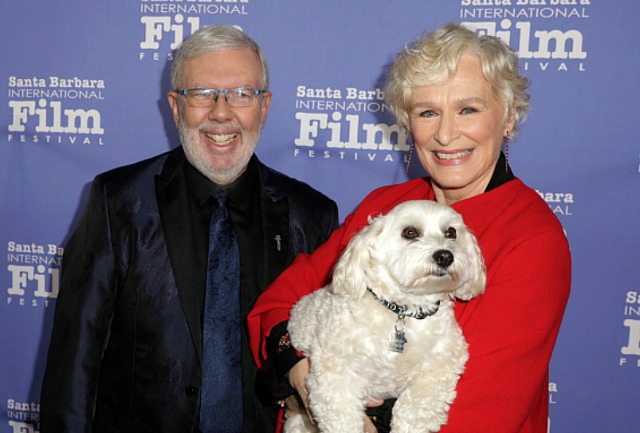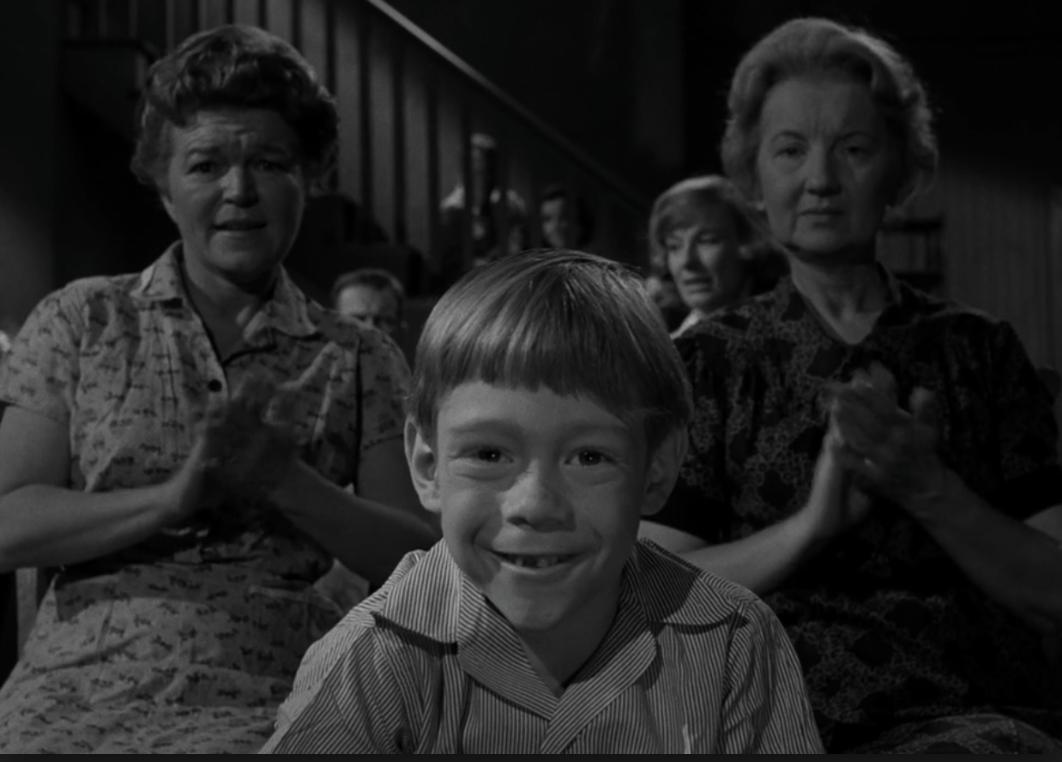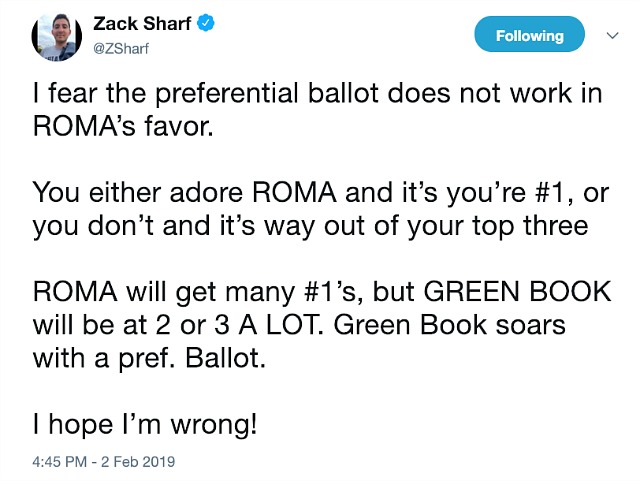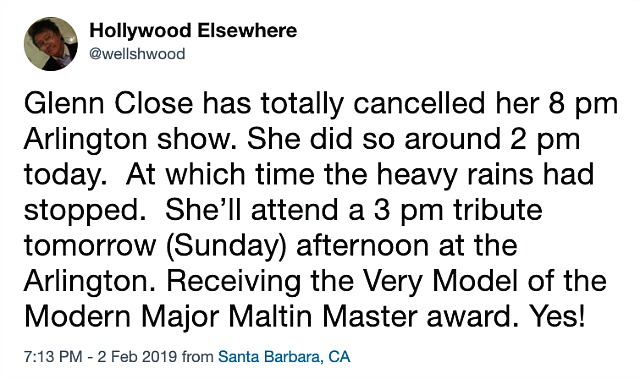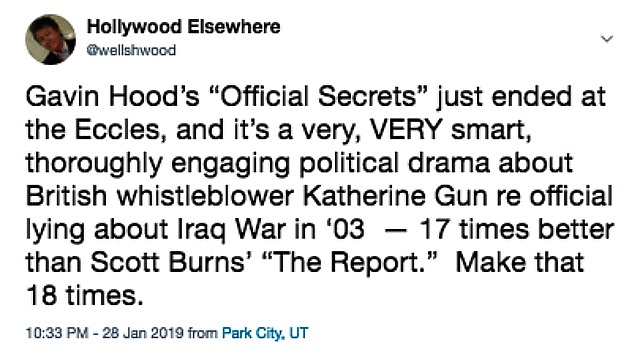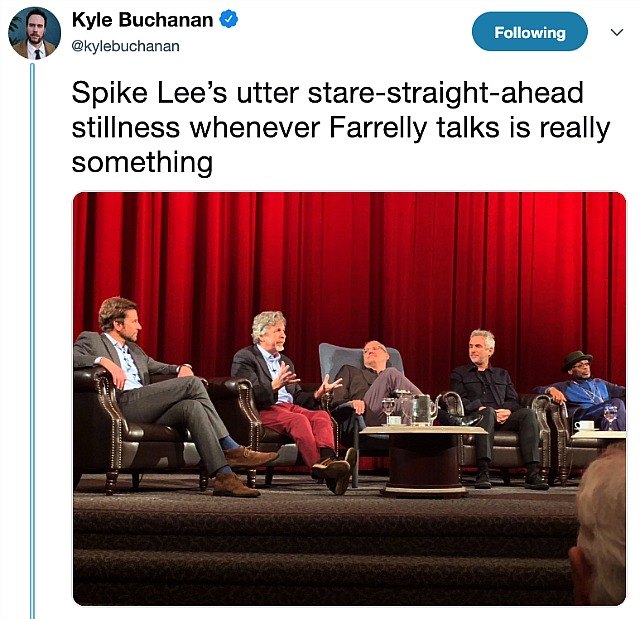Earlier today SBIFF devotees got a chance to see David Crosby: Remember My Name, the scaldingly honest doc from director A. J. Eaton and producer Cameron Crowe. It played at a 2pm show at Santa Barbara’s Lobero theatre, and was followed by remarks from Crosby (who lives near Santa Barbara) and producer Greg Mariotti.
Three or four days ago I asked Crowe if I could do a quick chat with Crosby after the show. He was down with this, but then I was told that Sony Pictures Classics, which acquired the doc two or three days ago, doesn’t want interviews until the film is about to open. Check, no worries. But I was introduced anyway.
The fun part came when Mariotti asked if I wanted a photo with Crosby, and I said “agghh, I’m not much for having my photo taken.” Mariotti said that Crowe himself wanted to commemorate the occasion, so I said “sure, if Cameron wants a shot…why not?” Crosby sensed my discomfort and said with a slight twinkle in his eye, “I get it…you don’t look that good any more and neither do I.”
Crosby was being 100% truthful. I love it when world-famous folks say stuff like this! 99% of the celebrities out there would never dream of telling…well, a somewhat long-of-tooth journalist that his peak attractiveness days are over, but this is what Type A impressionists do from time to time. The 77 year-old Crosby said it like water off a duck’s ass. Guys who share such words without blinking are worth their weight in diamonds. Candid, X-factor, let the chips fall.
Here’s my 1.27.19 Sundance rave of David Crosby: Remember My Name.
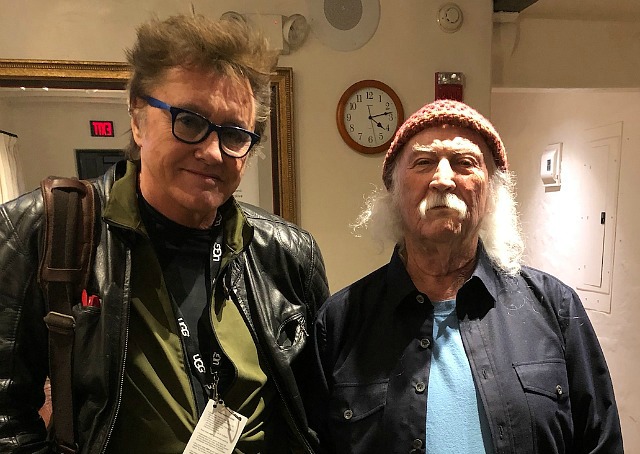
Snapped in Lobero Theatre green room — Sunday, 2.3, 4:15 pm.


